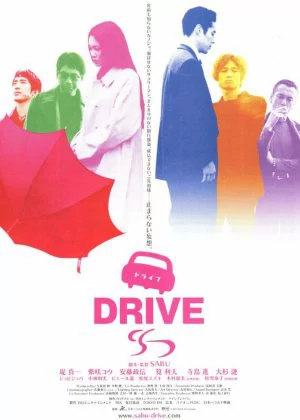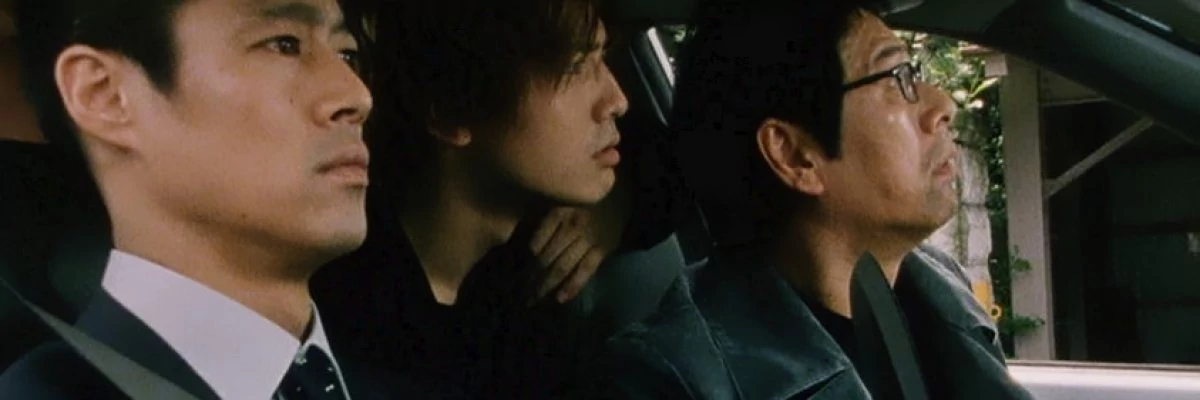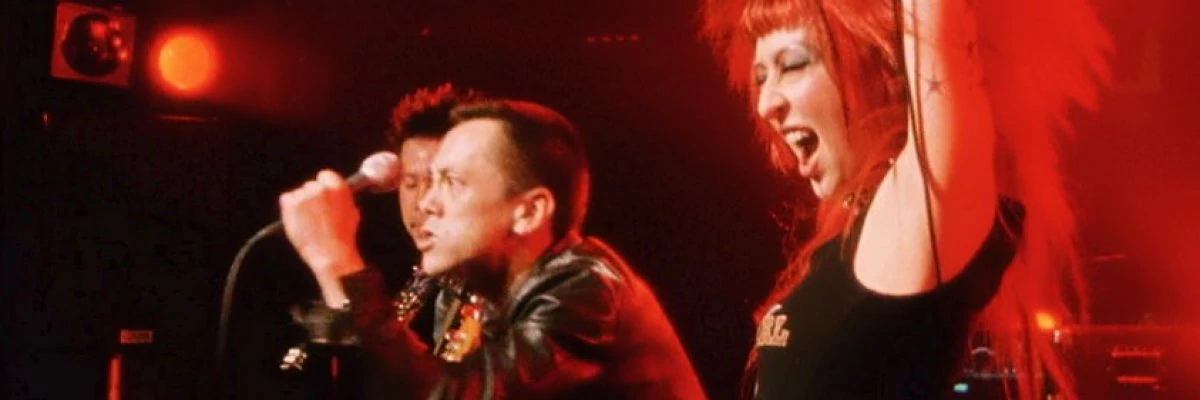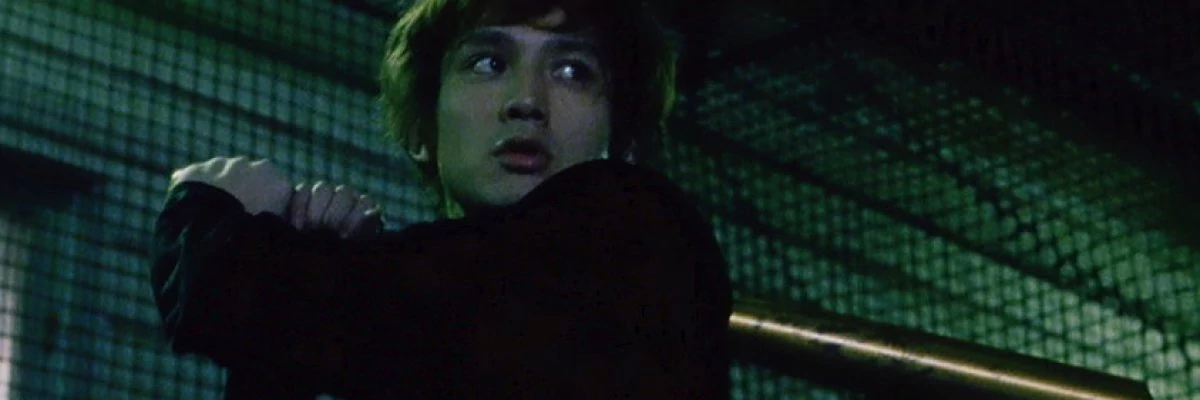Drive

When it comes to the hidden gems of Japanese cinema, Hiroyuki Tanaka (also known as SABU) probably tops my list. I hit his work pretty early on in my quest for Japanese live action cinema, and have been a fan ever since. Drive is one of his earlier films and while not quite up there with the best of them, I remembered it as a great film that aptly showcased all of Tanaka's trademark strengths. It's been a very long time since I watched this one though, so I was a little hesitant to revisit the film. Luckily there was no need for all that worry, it turns out Drive has retained all of its core strengths.

It's not that Tanaka is completely unknown in the West. His films do quite well in the film festival circuit and countries like France and Germany have been supporting his work from the get go. But when it comes to other territories (most notably the English-speaking ones), the options for watching his films dry up real fast. I'm sure there is some or other practical reason for this, as I doubt it's the quality or nature of his work preventing the releases. Tanaka's films are actually pretty accessible. He's not the most commercial director out there, but the mix of comedy and crime that characterizes his early films should have little trouble finding a welcoming audience.
Drive is a great example of what makes Tanaka's films so much fun. For one, there is the dry and quirky comedy that sets his work apart. A balanced mix of over-the-top and introvert characters face a series of slightly absurd events, the clash of these different personalities and their reactions is often hilarious. Then there is Tanaka's less strict adherence to plot. Some scenes linger, others stray away from the central story and some parts feel like they belong to a different movie altogether. Tanaka strives for coherence through atmosphere, not through structure or a logical story. This may be the most divisive element of his films, but it definitely adds a unique spin to them.
The plot revolves around Kenichi, who is suffering from heavy migraines. A trip to the doctor reveals that his strict upbringing might have something to do with it, and he leaves the doctor's office with some exercises to keep himself calm in stressful situations. Soon after, three gangsters jump into his car, urging him to follow their companion who has driven off with the loot. Kenichi obliges, but his lingering OCD forces him to obey the traffic rules, which doesn't really help with the chase. The three gangsters decide to regroup, but as they need Kenichi's car, they decide to keep him around.

Visually this is very much an extension of late 90s Japanese cinema. That means it's not very colorful and overall the film looks a little dulled and grim. Luckily solid camera work and playful editing, with diverse angles and some inventive cuts, bring some much-needed frivolity to the film. It's still not quite up there with films like Monday or Blessing Bell and it stands in shrill contrast with the often extremely colorful Japanese films that appeared during the early 00s, but it's solid enough, even if just a little dated by modern standards.
The quality of the soundtrack is in line with the visuals. Solid, well-used and effective, but it doesn't quite feel essential to the film. It's a decent soundtrack, that properly supports the scenes and quickly flips moods if needed, but the music itself isn't really all that memorable. It adds a little quirkiness to the film and it helps out with the rhythm of individual scenes, but a film like Drive could've benefited from a more leading score. So overall it's good enough, even though it never reaches its full potential.
The casting on the other hand is superb. Shin'ichi Tsutsumi is genius as the restrained but stressed-out lead, quietly taking all the abuse while things are clearly stirring right beneath the surface. Ren Osugi and Susumu Terajima (both Kitano regulars) are perfectly in sync with each other and are well-chosen for the gangster parts, while hilarious cameos by Suzuki Matsuo and Akaji Maro make the casting complete. There are no weak performances here and all actors are very well aware of what is asked from them.

The coolest thing about Tanaka's early films is that they feel freed from strict narrative structures. If you take a closer look you'll find that the three-act structure is still very much in place, but Tanaka allows himself more freedom in individual scenes. Some linger on for much longer than is the norm, others fly by and push the story forward a lot faster. Several principal characters also disappear from view a lot quicker than conventional film wisdom dictates. It makes the film less predictable and it keeps you more engaged, either because you can fully immerse yourself in the moment, but also because you don't really know what direction the film will be heading in five minutes from now.
Drive is a film that has aged quite gracefully. Stylistically it's clear this is a film from a bygone era, but Tanaka's superb sense of humor, several stand-out performances and a couple of very memorable scenes make Drive worth your while. It's an extremely solid entry in Tanaka's rich oeuvre and it's a shame this film isn't more readily available for people who might be interested. I had a lovely time revisiting Drive and I really hope there will come a day when I can finally plug this hole in my collection. Well recommended, if you can find the film that is.